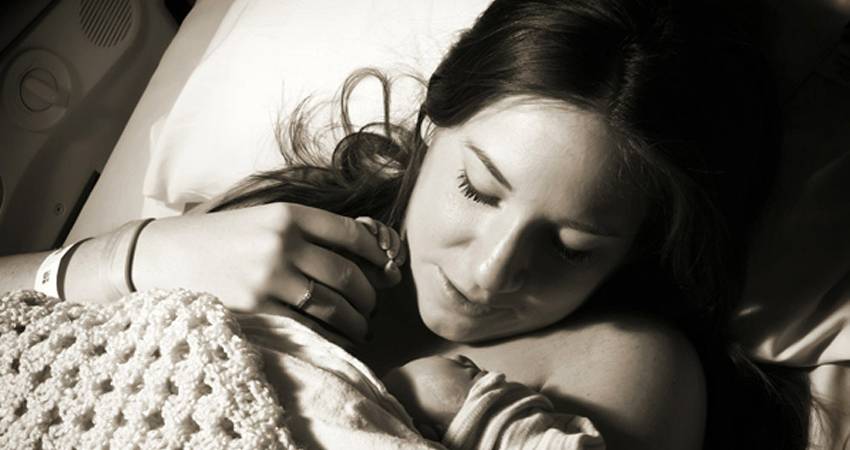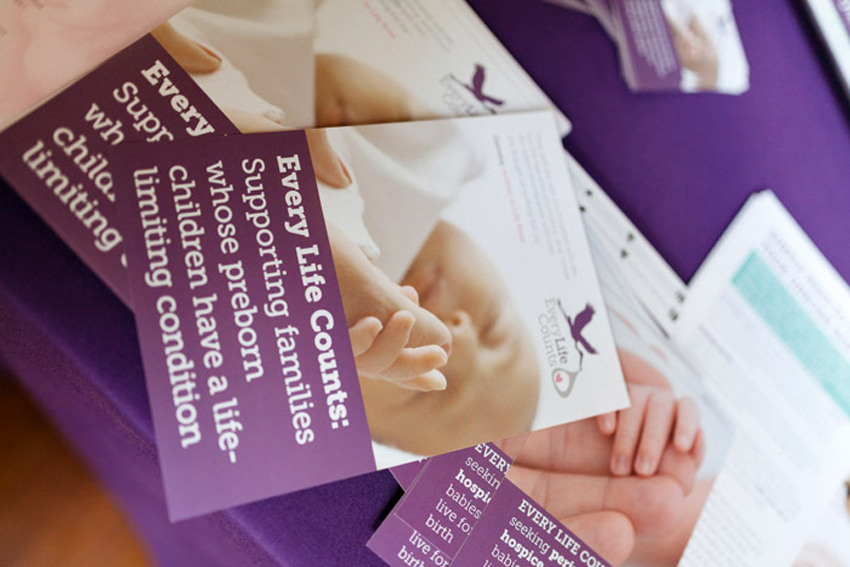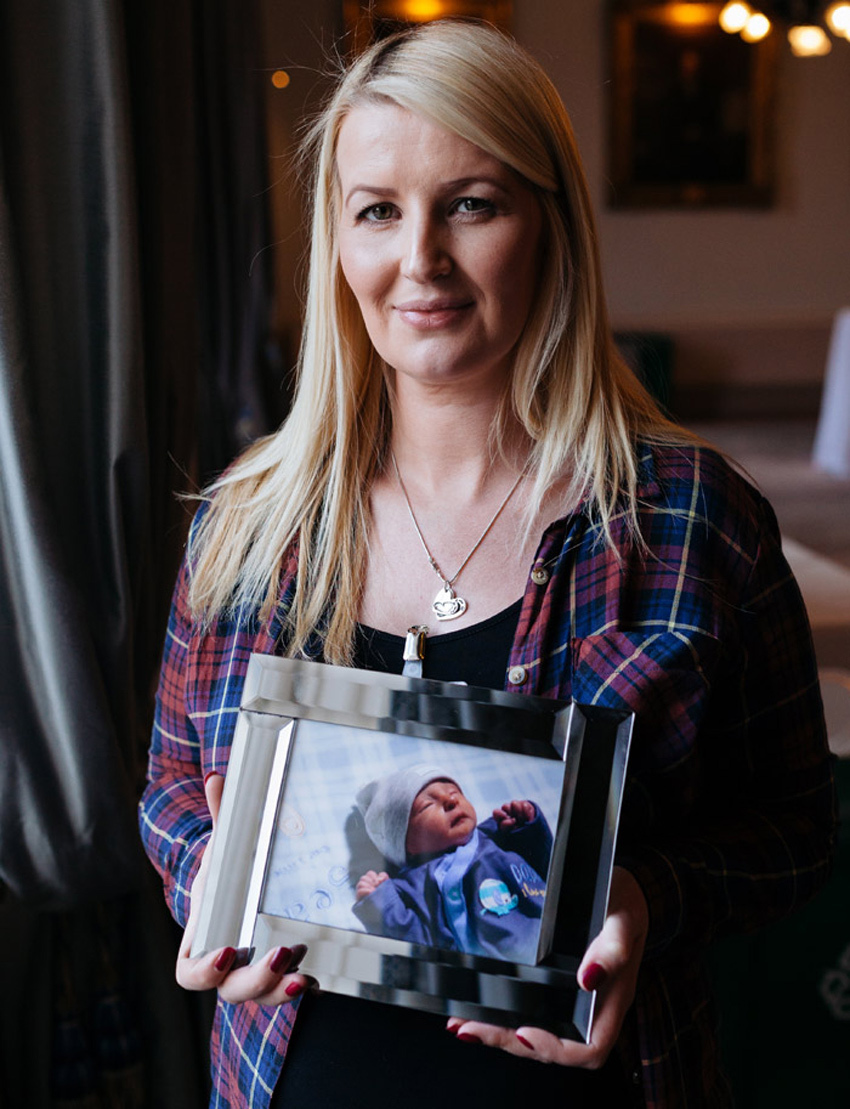
First perinatal care conference hears of revolutionary new treatments and perinatal hospice care
This past weekend, I had the pleasure of attending the International Perinatal and Hospice Care Conference held at the Royal College of Surgeons in Dublin. Going into the conference, I was prepared to hear typical medical conference fare – long and technical presentations albeit about an interesting topic. I was interested in learning more about issues surrounding babies born with foetal anomalies and new methods of providing care for these children. I was not expecting the conference – which was packed with doctors and nurses and midwives from all over the country – to be as hopeful and inspiring as it was.

Photo: Courtesty of Every Life Counts
The issue of babies prenatally diagnosed with severe life limiting disabilities has been a major topic of public discussion – both in Ireland and abroad – for some time. While the general public is overwhelmingly sympathetic towards parents who are told that their children will not live very long after birth, most of us have little idea what parents in these distressing situations should do when confronted with such a life-threatening diagnosis.
While the general public is overwhelmingly sympathetic towards parents who are told that their children will not live very long after birth, most of us have little idea what parents in these distressing situations should do when confronted with such a life-threatening diagnosis.
Abortion activists and the media tell us that this is why abortion must be permitted. They submit that termination is necessary in these cases. They tell us that it will mitigate the suffering of both mother and child.However, the doctors and specialists at the Perinatal and Hospice Care Conference offered a different alternative to the bleak picture provided by proponents of abortion.
The speakers at last Saturday’s conference (which was co-hosted by Every Life Counts, SOFT Ireland, and Féileacáin and the International Trisomy Alliance) represented a wide range of backgrounds. Medical experts offering clinical perspectives, were also joined by parents sharing their experiences and each, in their own way, offered up messages of hope for families effected by life limiting conditions such as Trisomy 13 and anencephaly. They highlighted how letting a baby with a severe prenatal diagnosis live for as long as they are able can be a profoundly positive thing for families.

Sarah with Baby Son Seán. Photo courtesy of Every Life Counts
Several speakers emphasized the importance of allowing parents the opportunity to spend time with their children and how having this chance contributes so much to the healing process. “We want to empower moms and dads to care for their babies,” stated Fran McCarthy, clinical coordinator of the Neonatal Comfort Care Program at New York Presbyterian Hospital. Dr. Elvira Parravicini, a neonatologist with the same program, stressed the importance for parents to bond with their baby- even under these tragic circumstances.
Dr. Elvira Parravicini, a neonatologist with the same program, stressed the importance for parents to bond with their baby- even under these tragic circumstances.
She notes, “The birth of these children is a moment of joy for their families even though they will not live long.”Another fascinating aspect of the conference was the discussion of innovative new treatments that are beginning to be developed which offers hope for families who are given a difficult prenatal diagnosis. Dr. Wayne Twoertzky of Harvard Medical School discussed how some serious heart defects can be fixed before birth and Dr. Meredith Birsner gave a very interesting presentation on a potentially groundbreaking technique which successfully treated a baby girl, prenatally diagnosed with Potter’s syndrome (wherein the baby fails to develop kidneys), a condition previously considered to be entirely fatal.
Perhaps the most compelling presentations, though, came from parents whose children were prenatally diagnosed with these heartbreaking conditions. Several mothers from Every Life Counts, Féileacáin and SOFT Ireland came forward to tell their stories and talk about their babies, and were very well received by the medical professionals present.
Dan Haley and Jenna Gassew, whose son Shane’s “bucket list” went viral across the world’s media, gave a powerful and moving presentation on their experience of going to term with their son and the importance of their short time together as well as the need of increased access to perinatal hospice care. Regarding Shane, Dan stated very simply, “I can assure you – our son was beautiful,” and added “He was my son. The diagnosis didn’t change that.”

Photo: Jenna with Baby Shane. Courtesy of Jenna and Dan
The conference was an amazing experience and reinforced the truth that, not only are there alternatives to abortion in these difficult cases, but the alternatives are so much better for families.
MEDIA
Watch Dan and Jenna on TV3’s Ireland AM speak of their son Shane Micheal and the precious time they spent with him
http://www.tv3.ie/shows/irelandam/article/1.65.1482.1485/191495/Prayers-For-Shane
Listen to Dan and Jenna speak of their son Shane Michael who was diganosed in the womb with anencephaly
ORGANISERS
- Every Life Counts : www.everylifecounts.ie
- International Trisomy Alliance : www.internationaltrisomyalliance.com
- Soft Ireland: www.softireland.com
- Féileacáin: www.feileacain.ie
Nora Sullivan is a blogger and journalist
Featured
- Man jailed for 9 years for forced abortion
- Abortion coercion has arrived in Ireland – the NWC are silent
- Review of at-home abortions 'needed after coercion case'
- French Govt to remind 29-year-olds of biological clock
- Huge factor in decline in primary school numbers ignored
- Germany Denies Promoting Abortion Abroad—While Funding Pro-Abortion NGOs
- Govt don’t oppose Coppinger abortion bill at 1st stage
- March for Life: Vance, the White House, and a Divided Pro-Life Movement
- Paris’ Annual March for Life Puts Euthanasia in the Spotlight
- Britain’s seemingly limitless abortion rate
- The importance of the work carried out by Every Life Counts
- Puerto Rico officially recognizes unborn children as ‘natural persons’
- Assisted suicide laws stalled by “complex” legal issues
- Yes, that hideous celebration of 300 abortions is real
- White Crosses Memorial: Dungarvan once again pays its respects to our aborted babies
- Josiah: Abortion Survivor
- Rally for Life 2025



























